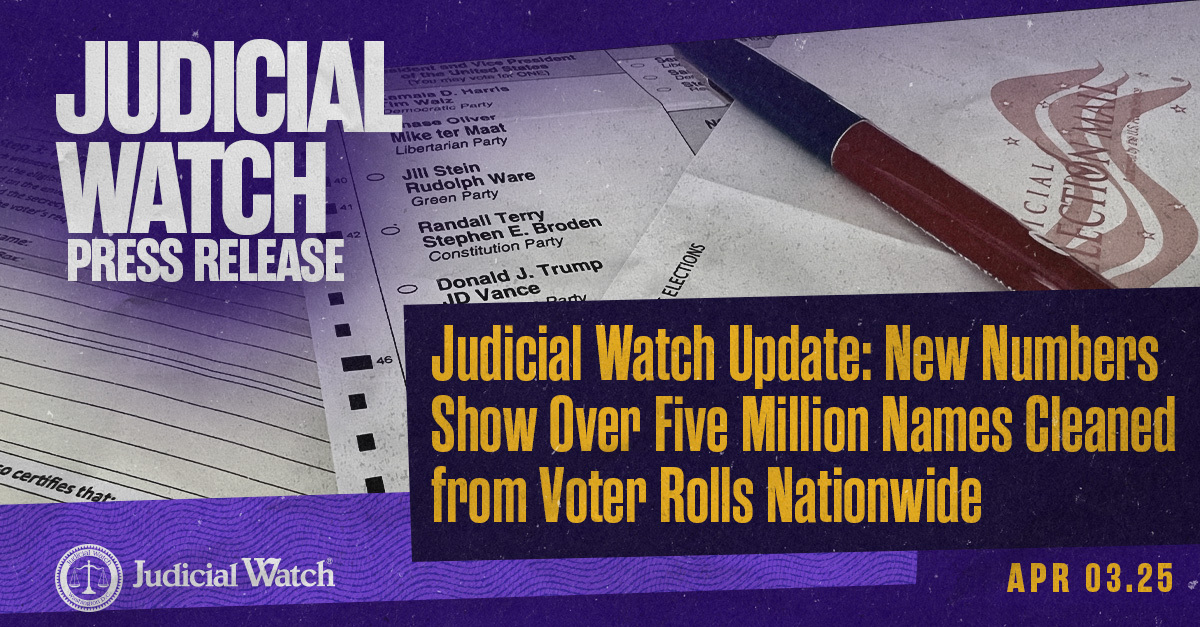
Judicial Watch Sues Federal Reserve Board of Governors for Records Detailing Justification for AIG Bailout
(Washington, DC) – Judicial Watch announced today that on July 18, 2012, it filed a Freedom of Information Act (FOIA) lawsuit (Judicial Watch v. Board of Governors of the Federal Reserve System (No. 1:12-cv-01175)) against the Board of Governors of the Federal Reserve System (the Board) seeking records related to the government bailout of American International Group, Inc. (AIG). Judicial Watch filed its lawsuit on behalf of Vern McKinley, a former employee of the Board of Governors of the Federal Reserve and the Federal Deposit Insurance Corporation and author of Financing Failure: A Century of Bailouts.
Judicial Watch seeks the following records pursuant to its original May 15, 2012, FOIA request: “Copies of any and all records of the Board located at the [Federal Reserve Bank of New York] concerning, regarding, or relating to the proposition that ‘the disorderly failure of AIG was likely to have a systemic effect on financial markets that were already experiencing a significant level of fragility.’ Such records include, but are not limited to…detailed meeting minutes, meeting notes, supporting memoranda, communications, and electronic messages and attachments.”
The Board acknowledged receiving Judicial Watch’s request on May 15, 2012, and requested a 10-day extension to respond. A response was due by June 27, 2012. However, as of the date of Judicial Watch’s lawsuit, the Board failed to respond in accordance with FOIA law.
On September 16, 2008, the Board decided to extend an initial $85 billion loan to insurance giant AIG, which it claimed “faced the imminent prospect of declaring bankruptcy.” According to minutes from the September 16, 2008, meeting: “Board members agreed that the disorderly failure of AIG was likely to have a systemic effect on financial markets that were already experiencing a significant level of fragility and that the best alternative available was to lend to AIG to assist it in meeting its obligations in an orderly manner as they came due…” According to CNN, the total cost committed to AIG was $182 billion.
The Board’s contention – that the failure of major corporations would spread a contagion throughout the financial system – has been used repeatedly to justify the bailouts. However, to date, the government has no evidence to support this contention. Judicial Watch, meanwhile, has launched a comprehensive investigation to determine under what legal authorities and lawful rationales the federal government initiated the Wall Street bailouts and has filed a number of lawsuits on behalf of Mr. McKinley.
“We are now trillions of taxpayer dollars into these financial bailouts and the government refuses to answer basic questions about the government’s radically intrusive response to the financial crisis,” said Judicial Watch President Tom Fitton. “The American people are tired of the Obama administration’s stonewalling and they want answers. The Fed should obey Freedom of Information Act law and respond immediately.”
With respect to the AIG bailout, Judicial Watch previously uncovered documents showing that the government did not expect taxpayers to recover their “investment” in AIG. For example, Judicial Watch uncovered a series of presentation slides detailing the terms of the AIG bailout. Included among the items is a slide entitled “Investment Considerations.” On the slide the words, “The prospects of recovery of capital and a return on the equity investment to the taxpayer are highly speculative” are crossed out by hand.
On February 25, 2010, Judicial Watch also filed a FOIA lawsuit against the Obama Treasury Department to obtain documents regarding meetings involving Kenneth Feinberg, special master for executive compensation under the Troubled Asset Relief Program (TARP); AIG Chairman Robert Benmosche; and New York Federal Reserve Bank President William Dudley. Feinberg, also known as the Obama administration’s “pay czar,” is the federal official responsible for setting compensation guidelines for the seven largest firms, including AIG, using funds from TARP.
In March 2009, AIG disbursed $165 million in taxpayer-funded TARP funds to its top executives, prompting a massive public backlash. Obama officials reportedly lobbied Congress to insert legislative language allowing the AIG bonus payments and then apparently lied about their knowledge of the payment scheme. As then-head of the New York Federal Reserve, current Treasury Secretary Timothy Geithner helped craft the original AIG deal.
















